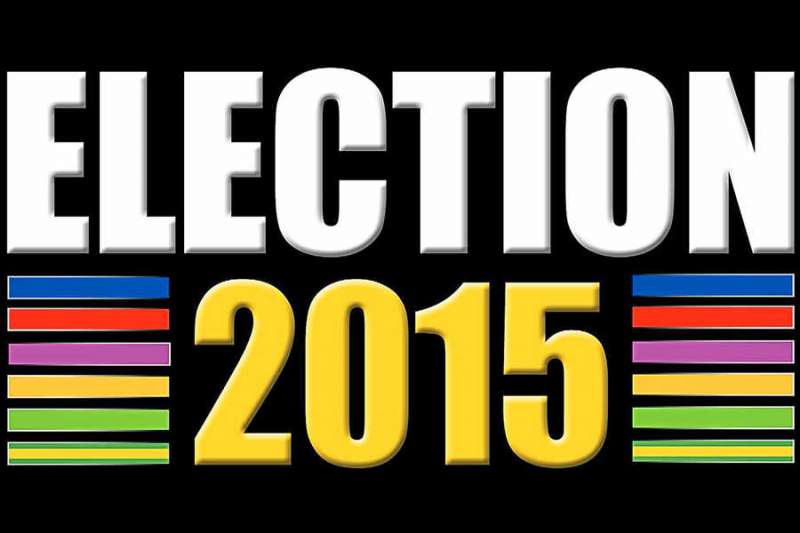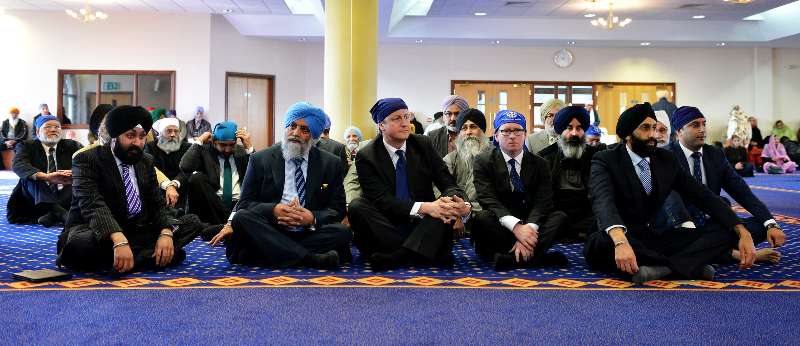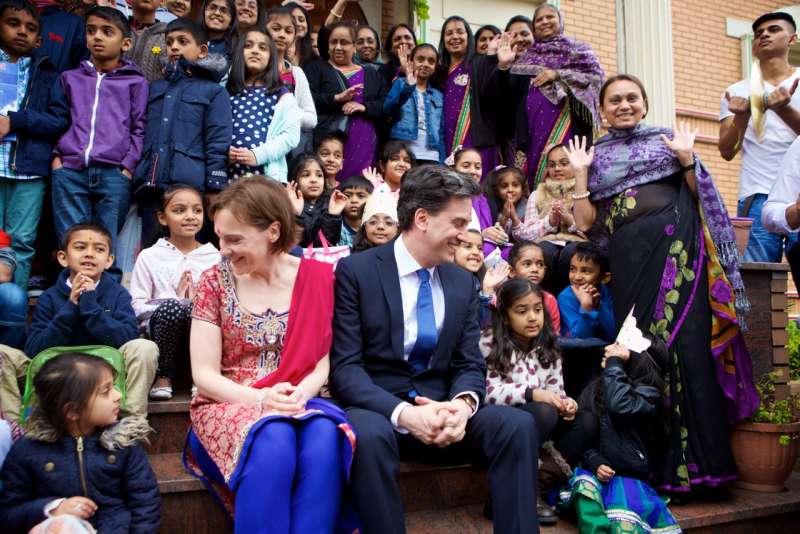Some 30 million votes will be cast in Thursday’s general election, but the opinion of just a small group of people could decide who walks through Number 10…writes Kaliph Anaz
 As the election enters the crucial 48-hrs phase, Prime Minister David Cameron and other British leaders are own prowl to bag the undecided voters.
As the election enters the crucial 48-hrs phase, Prime Minister David Cameron and other British leaders are own prowl to bag the undecided voters.
Asians are the most sought after community as a survey shows about 24 per cent of the voters are still undecided. The 700,000 strong Indian-born population is now the largest foreign-born group in the country and is expected to play kingmaker. Some 30 million votes will be cast in Thursday’s general election, but the opinion of just a small group of people could decide who walks through Number 10.
As the surveys predicting a hung parliament, the balance of power and future direction of the country could be decided by a single seat. Punters are predicting the size of the smallest winning margin in a single seat will be just 29 votes.
Despite months of campaigning, many races are still too close to call and will hinge on a very small number of votes. .Every door knocked between now and 7th May could swing the entire election. Politicians knew this fact and they are on nationwide tour to meet more and more voters and attend corner meetings as much they can.
 A survey conducted by BBC Asian Network/ICM shows nearly a quarter of Asian voters do not know which party they will support at the May 7th election. The survey also found that, of those who had decided, 39% said they may change their minds before 7 May. It shows the Asian vote in Britain, traditionally considered to lean towards Labour, is still up for grabs.
A survey conducted by BBC Asian Network/ICM shows nearly a quarter of Asian voters do not know which party they will support at the May 7th election. The survey also found that, of those who had decided, 39% said they may change their minds before 7 May. It shows the Asian vote in Britain, traditionally considered to lean towards Labour, is still up for grabs.
Asians constitute about 5 per cent of the British population but they are crucial in the victory of 168 marginal seats including Southampton, Oxford, Sherwood, Ipswich and Northampton.
Tories secured only 16% of the ethnic minority vote at the last election, compared with 68% for Labour. But the scenario is changing. Conservative Party has fielding the highest number of candidates ever from black and minority ethnic (BAME) groups, including Indians for the upcoming elections. The party has chosen 56 BAME candidates in England and Wales, which include the 11 MPs who are already in parliament. The list includes 12 candidates of Indian origin.
The party’s four top leaders in parliament are also of Indian origin — Alok Sharma who is MP from Reading West, Shailesh Vara from North West Cambridgeshire, Paul Uppal from Wolverhampton South West and Priti Patel, from Witham. Mr Rishi Sunak, son-in-law of Infosys’ Krishna Murthy, is among the new candidates. He is contesting from the Tory stronghold seat of Richmond, the seat of former foreign secretary William Hague.
Other prominent British-Asian candidates of Indian-origin are Miss Natasha Asghar, Newport East, Mr Kishan Devani, Leicester East, Mr Douglas Hansen-Luke, Walsall North, Dr Altaf Hussain, Swansea East, Mr Samir Jassal, East Ham, Cllr Vidhi Mohan, Croydon North, Mr Simon Nayyar, Feltham and Heston, Ms Suria Photay, Wolverhampton South East and Ms Chamali Fernando, Cambridge, Mr Arun Photay, Birmingham Yardley, Mr Suhail Rahuja, Hornsey and Wood Green, Mr Gurcharan Singh, Slough and Mr Bob Dhillon, Washington and Sunderland West

Labour is fielding 52 ethnic minority candidates which includes Mr Keith Vaz from Leicester East, Mr Virendra Sharma from Southall, Seema Malhotra from Feltham and Heston.
A study by British Future predicted that the Commons could see more than 40 BAME MPs at this election, up from 27 in the last parliament. According to the 2011 census, the BAME population in Britain is at 14%, meaning the country needs 91 BAME MPs to reflect the society.
Cameron promised to increase the number of BAME MPs through his 2020 Vision agenda. He has promised to allocate 20 per cent of the new Conservative Parliamentary Candidates in retirement seats to a candidate from a BME background. We are sure, the Labour party will match up with a similar commitment.